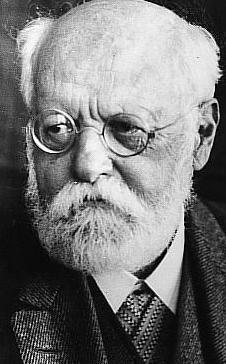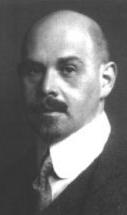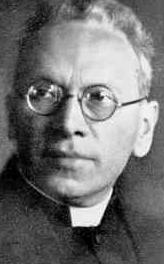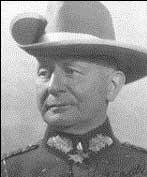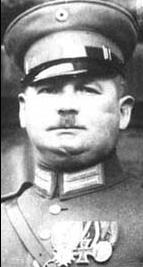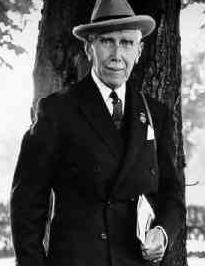German parties
From Kaiserreich
Germany is a federal semi-constitutional monarchy ruled by the German Kaiser (who is also King of Prussia). Although Germany has many political parties, the state policies are rather authoritarian. The Constitution of the Second German Reich has stood in place for 60 years. The Chancellor and Government are appointed by the Kaiser, but legislation needs to be approved by the Reichstag, a chamber elected proportionally by universal male suffrage, and the Bundesrat, consisting of representatives from each of the states. While the Reichstag is far from a rubber-stamp institution, and has become increasingly vocal and assertive over the past thirty years, it is not yet strong enough that it can actually bring down a Government. The relative weakness of the Reichstag has meant that a wide range of voluntarist pressure groups have sprung up, attempting to push forward a range of economic, political and sectional causes. In addition, the various states of the Reich have considerable autonomy and influence over local matters, including education, law enforcement and arts patronage. While many of the smaller states have extremely liberal constitutions, the unequal Estate-based electoral system for the Prussian Landtag remains a bone of contention.
Despite his authoritarian nature, the German political system is favourable to be multiparty; each one is representing some part of the Kaiserreich, and in these troubled times, each one can gain much power. The current Reichstag is ruled by a Ständischer Verbund majority, confident to the Kaiser's decision.
Contents |
Sozialdemokratische Partei Deutschlands
Created on May, 23 1863, the SPD (Social Democratic Party of Germany) is the oldest party in Germany and among the most powerful leftist parties in non-syndicalist Europe. First countered by the social welfare reforms of Bismarck, the socialists, divided between pro-Revolution and democrats, increased his influence within the Reichstag, becoming the strongest party in 1912, on the eve of the Weltkrieg. This one totally divided the German socialists, divided between rallying the fight for the fatherland or betraying the Kaiserreich which was crushing the Bolchevik brothers in Russia and isolating the Syndicalist fellows in France. With the death of Friedrich Ebert in 1925, the true social-democrats lose control within the SPD, which was himself losing the vote of the lower classes, too happy of the successes of the Mitteleuropean system or voting for the national-populists. Under the leadership of Karl Kautsky, the SPD is trying a more moderate approach, in order to stay as a strong interest group, while the Spartakusbund is favorable to a French-like organisation able to rally all the German workers, and other ones wanting a renewal of the Bolshevik experience in the country which saw the birth of Karl Marx.
The SPD voters are mostly among the lower classes and the industrial areas, but some analysts are finding more and more voters in Elsass-Lothringen, as the proximity with Commune of France is creating a mix between French nationalism and marxist ideals.
Main members:
Chairman: Karl Kautsky, editor of the fourth volume of Karl Marx's Das Kapital, leading promulgator of marxism since Engels' death. Born on October, 16 1854
Representative at the Reichstag: Otto Wels
Representants of the different wings:
Democratic SPD (Ebertists): Hans Vogel, Arthur Crispien, Kurt Schumacher, Gustav Noske, Gustav Bauer, Conrad Patzig, Erich Ollenhauer, Eugen Gerstenmaier, Georg August Zinn, Hans Speidel, Josef Kammhuber
Syndicalist SPD (Spartakusbund): Karl Liebknecht, Kurt Eisner, Bertolt Brecht, Paul Levi, Andres Hermes, Anton Ackermann, Franz Nowak, Jakob Kaiser, Otto Korfes, Otto Nuschke, Walter Freytag
Bolshevik SPD (Marxist-Leninists): Ernst Thälmann, Ernst Toller, Ludwig Renn, Walter Ulbricht, Albert Kuntz, Erich Mielke, Ernst Wollweber, Georg Derlinger, Helmet Herzfelde, Julius Leber, Karl Steinhoff, Wilhelm Pieck, Willi Stoph
Fortschrittliche Volkspartei
Created on March, 6 1910, the FVP (Progressive People's Party) claims liberal democracy as it existed in Western Europe before the Weltkrieg, criticizing the authoritarian rule of the Prussian Junkers and advocating for more freedom and true democracy, without any revolution, opposing the ruling wing of the SPD. Unfortuntely, his soft program deceives most of the democrat intellectuals, mostly republicans, and many of the German citizens, too happy with a dictatorial regime who brings them prosperity and welfare. Thus, the Progressists stays as an anecdotical party in Germany.
Main members:
Chairman: Walther von Rathenau, wealthy industrialist of Jewish ancestry, ennobled by the Kaiser for his part in the German saving of Austro-Hungarian industry in the late 20's. Born on September 29, 1867.
Representative at the Reichstag: Wilhelm Külz, born on February 18, 1875.
Other members: Otto Gessler, Theodor Heuss, Hans Dohnanyi, Albert Einstein, Wilhelm Roepke, Franz Blücher, Franz Etzel, Gustav Heinemann, Hans Seidel, Hans Gisevius, Heinrich von Brentano, Heinz Starke, Josef Kammhuber, Reinhold Maier, Thomas Dehler
Deutsche Zentrumspartei
Created on December, 13 1870, the Zentrum (German Centre Party) represents the interests of the German Catholics (still influential in Southern Germany) and is sometimes described as the classical opposition between militarist Prussia and rural Bavaria, the true protectors of traditionalism or Vatican agents, depending on the one who is describing it. Claiming to have been martyred by Berlin during the Kulturkampf, the Catholics are rather suspicious towards the decisions of the Prussian protestant ministers, even if they are conservatives as them. With the effective control of the Church on Northern Italy, many paranoid politicians are fearing an alliance between the rulers of Rome and an extremist Zentrum, especially if a German-speaking pope like Innitzer is elected; other ones are fearing the Zentrum as a potential ally for Austrian interests within their German big brother.
The Centrist vote is firmly established in both the Rhineland and Bavaria, while it's almost non-existant in Eastern and Northern Germany.
Main members:
Chairman: Ludwig Kaas, Rhenish priest, former advisor to Eugenio Pacelli (current Secretary of State of Italian Federation). Born on May, 23 1881.
Representative at the Reichstag: Heinrich Brüning. Born on November, 26 1885.
Other members: Konrad Adenauer, Adam Stegerwald, Franz Josef Strauss, Fritz Schäffer, Hans Ehard, Josef Wirmer, Karl Arnold, Karl Heinrich Lübke, Ludwig Erhard, Robert Lehr
Nationalliberale Partei
Created in 1867, the NLP (National Liberal Party) was first created by liberal politicians who put aside their differences of point of view with Bismarck to share his foreign policy successes: after Bismarck's rupture from the liberals, they eventually supported Admiral von Tirpitz's Fleet Acts in 1898, enhancing the arms race with the British Empire. Becoming more and more conservatives with the time, in order to show the split with the other liberals who were rallying the SPD. Massively supporting the Imperial government during the Weltkrieg, the National-Liberals led by their chairman Gustav Stresemann also supported the constitution of the Mitteleuropa system and the protectionist policies of Tirpitz Chancellorship, even if they continued to claim more democracy and respect of the parliamentarism. After Stresemann's death in 1929, they are now led by Generalfeldmarschall von Lettow-Vorbeck, becoming a great figurehead of German politics after his entry into the German political scene following his retirement from the Army.
The NLP is considered as a cross of all non-represented positions in Germany, such as strong liberalism, soft nationalism, militarists and even republicans, who are recognizing in the party's program, claiming both democracy and conservatism. The charismathic Field Marshal von Lettow-Vorbeck also gives to his party a lot of his prestige.
Main members:
Chairman: Paul Emil von Lettow-Vorbeck, undefeated general during the African campaigns of the Weltkrieg, Generalfeldmarschall and former Statthalter of Freistaat Mittelafrika Born on March, 20 1870.
Representative at the Reichstag: Count Johann Ludwig Schwerin von Krosigk. Born on August, 22 1887.
Other members: Oskar Meissner, Ludwig Fulda, Albert Dufour-Feronce, Constantin von Neurath, Ludwig Kastl, Carl Melchior, Franz Gürtner, Franz Seldte, Wilhelm Waetzoldt, Hans Heinrich Lammers, Julius Curtius, Julius Ringel, Wilhelm Oxenius
Alldeutsche Verband
|
Created in 1922, the Alldeutsche Verband was seen as the political unification of the main pre-Weltkrieg Völkisch movements, the popular and ultranationalist movements urging for the Grossdeutschland Losung (Greater Germany Solution), or the unification of all the German-speaking peoples in Europe, in particular Austria and Sudetenland. Prior to the Weltkrieg, the Völkisch movement was only seen as a bunch of fanatical nationalists, virulent anti-Semites and weird mysticists, obssessed by manly Vikings, such as the Runosophists of Guido von List, the Thule Society or the Alldeutscher Verbung who had the newspaper tycoon Alfred Hugenberg in his ranks. But after the Munich Congress of 1923, Oberleutnant Ernst Röhm took the title of chairman of the Pan-Germanist Party and managed to give a respectable image to the nationalist party, forging an alliance with the left wing of the Party led by Gregor Strasser. With his efforts, the AV managed to retain several seats within the Reichstag at the last elections and had several of his members put in office, such as Hermann Göring in Mittelafrika.
With his anti-syndicalist program, strangely mixed with socialist economical views and anti-Semetic views, the AV is beating the SPD in his former ground: the ordinary people. With the Austro-Hungarian economical crisis of the late 20's and the ethnic struggles in Baltic States, the local sections of AV in these countries are growing and seeking union with Germany. The party even has a member of the Imperial family in his ranks: the fourth son of the Kaiser, August Wilhelm von Hohenzollern. The announcement of his membership was one of the worst scandals in the post-Weltkrieg Germany.
Main members:
Chairman: Ernst Julius Röhm, Oberleutnant of Bavarian army, former military advisor in Bolivia. Born on November, 28 1887.
Representative at the Reichstag: Gregor Strasser. Born on May, 31 1892.
Other members: Prince August Wilhelm von Hohenzollern, Otto Strasser, Franz Xaver Ritter von Epp, Hans Frank, Rudolf Hess, Fritz Todt, Roland Freisler, Baldur von Schirach, Alfred Jodl, Wilhelm Keitel, Werner Naumann, Walter von Reichenau, Walter Buch, Rudolf Diels, Paul Giesler, Konstantin Hierl, Karl Hanke, Hugo Sperrle, Hans-Jürgen Stumpff, Hans Krebs, Ferdinand Schörner, Arthur Axmann
Deutschkonservative Partei
The old Prussian landed nobility still leads every aspect of the German political life. The Deutschkonservative Partei, or DKP, has been their main party since 1876. Now, united with Tirpitz DNVP and in alliance with Hugenbergs DVP, the party still has Germany in its grip. The victory of the Reich during the Weltkrieg definitely proved that the Junker-led government and military was the best way ever to bring Germany to victory, and power is still monopolized by a monarchist, reactionary and wealthy minority, relatively unaware of the rising discontent in the working classes. The Kaiser himself, conscious of his old age, is trying to maintain his own views for Germany by appointing independant Reichskanzlers extracted from the aristocracy, in order to keep the Imperial Government above the parties.
Main members:
Chairman: Franz Joseph Hermann Michael Maria von Papen, former Zentrum politician and Reichskanzler since 1934. Born on October, 29 1879.
Representative at the Reichstag: Carl Friedrich Goerdeler. Born on July, 31 1884.
Other members: Friedrich-Werner von der Schulenberg, Manfred von Richthofen, Kurt von Schleicher, Oskar von Hindenburg, Wilhelm von Gayl, Walter von Brauchitsch, Walter von Lüttwitz, Hjalmar Schacht, Ulrich von Hassel, Hans von Blumenthal, Helmuth von Moltke, Johann Heinrich von Bernstorff
